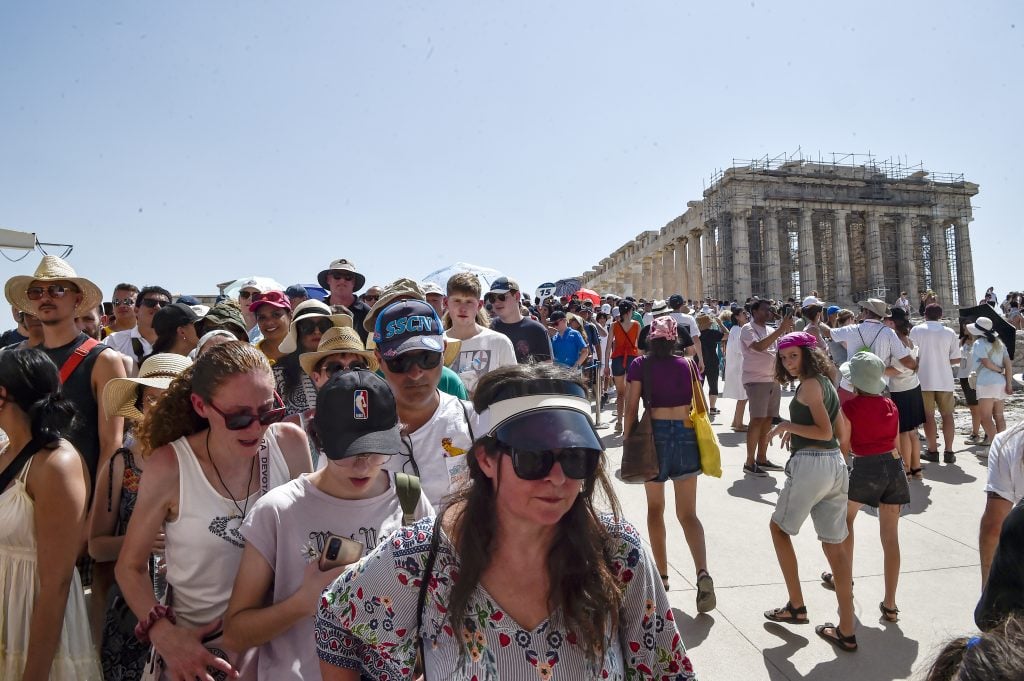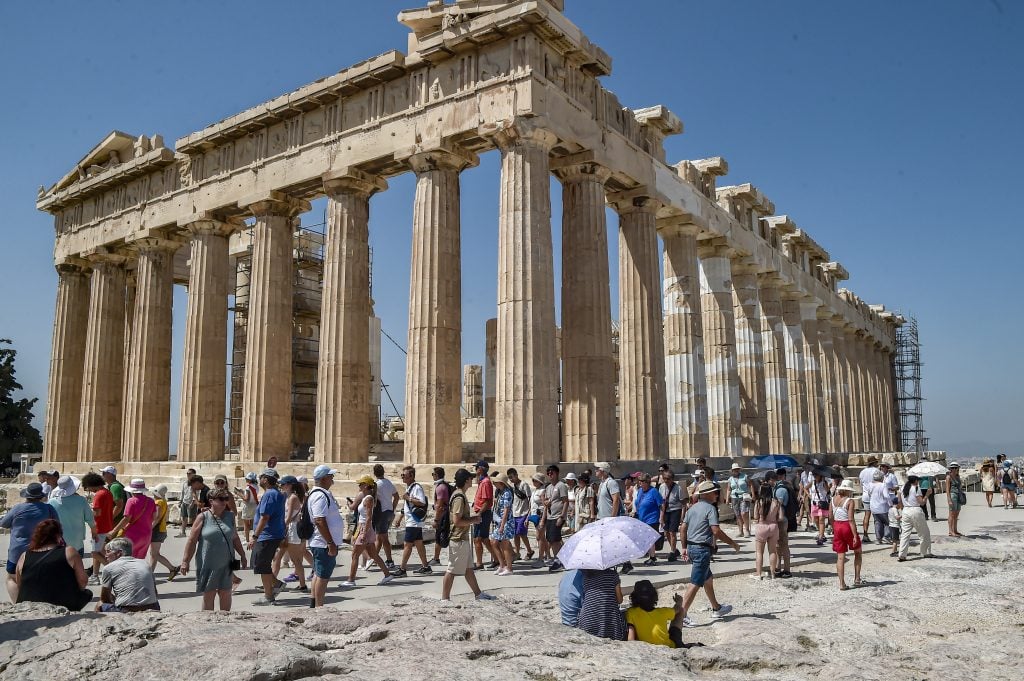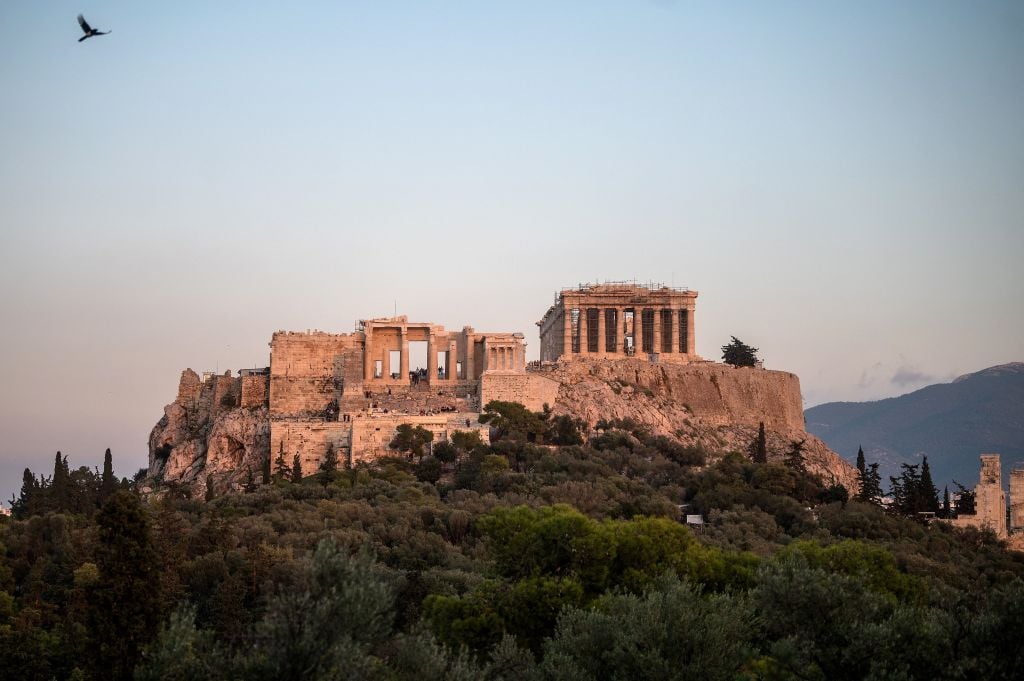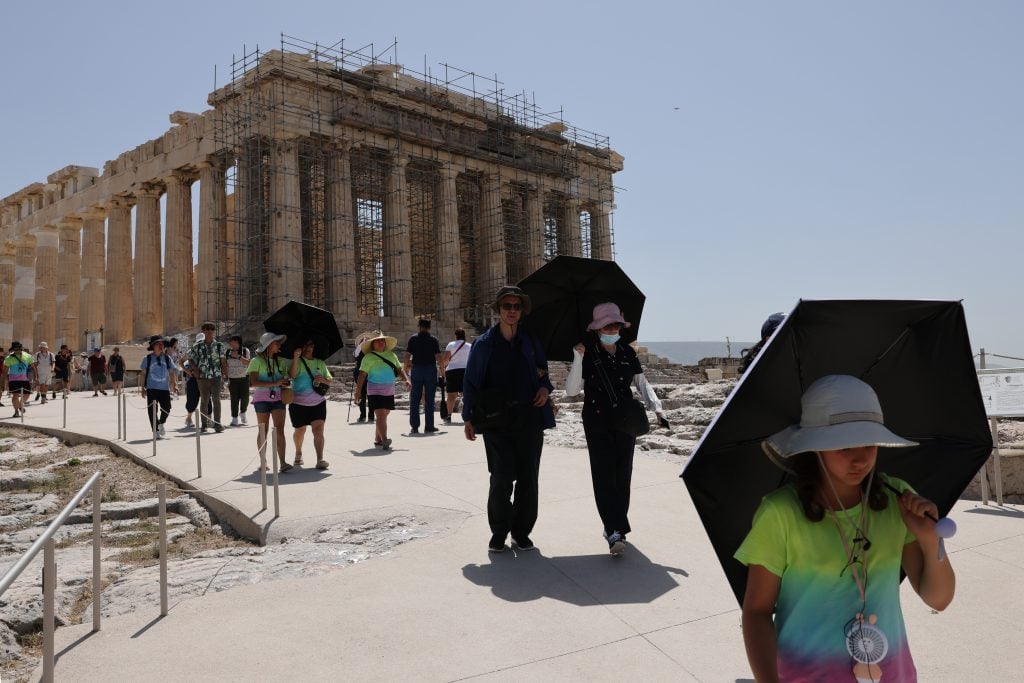Archaeology & History
Greece Will Curb Rampant Tourism at the Acropolis to Protect It Against Damage and Overcrowding
The ancient hilltop citadel is the nation's most popular archaeological site.

The ancient hilltop citadel is the nation's most popular archaeological site.

Sarah Cascone

As throngs of summer tourists descend on Greece, the country has decided to limit the number of visitors to its most popular archaeological site, the Acropolis, to 20,000 guests per day.
This year, with tourism spiking, the fifth century B.C.E. UNESCO World Heritage site, located atop a rocky hill in the heart of Athens, has been attracting as many as 23,000 people each day. In 2022, annual visitorship reached three million.
“That’s a huge number,” Greek culture minister Lina Mendoni told the radio station Real FM. “Obviously tourism is desirable for the country, for all of us. But we have to find a way of preventing over tourism from harming the monument.”
The influx of visitors—up 80 percent from June and early July of 2019 and the same period this year—has led to concerns about the long-term preservation of the ancient citadel, most famous as the home of the Parthenon temple, dedicated to the goddess Athena.

Atop the Acropolis ancient hill, tourists visit the Parthenon temple during a heat wave on July 20, 2023 in Athens, Greece. The Acropolis of Athens and other archaeological sites in Greece announced reduced opening hours due to the heatwave conditions. Photo by Milos Bicanski/Getty Images.
Overcrowding also create bottlenecks among tourists exploring the site.
Starting on September 4, the government-imposed quota will include hourly entry limits based on the time of day. Currently, roughly half of visitors arrive before noon in large groups from cruise ships and other organized tours, spending about 45 minutes at the Acropolis.
“In the past, these cruise ships had the capacity to carry a few thousand, the population of a large village,” Lysandros Tsilidis, the president of the Federation of Hellenic Associations of Tourist and Travel Agencies, told the Greek Reporter. “Now the vessels are so big you’ve got the size of a small state on board and at least 30 percent of all of those passengers will have pre-purchased tickets to visit the Acropolis.”
With the new measures, 3,000 visitors will be admitted when the monument opens at 8 a.m., with an additional 2,000 slots at 9 a.m. and varied allotments throughout the day. The Acropolis closes at 9 p.m.

The Parthenon Temple at the top of the Acropolis hill in Athens. Photo by Angelos Tzortsinis/AFP via Getty Images.
The plan is to introduce the limits next month on a trial basis. If all goes well, the restrictions will become permanent in April, when they will also roll out to other archaeological sites across the country.
“The measure will address the need to protect the monument, which is the main thing for us, as well as [improving] visitors’ experience of the site,” Mendoni said, as reported by the Associated Press.
The culture minister, who is a classical archaeologist, controversially installed concrete pathways between some of the Acropolis temples in the fall of 2021. Her plan to widen the site’s Propylaia gateway to improve access to the site has also been met with criticism.

People use umbrella to protect themselves from the sun as they visit the Parthenon temple atop the Acropolis hill, during a hot weather in Athens, Greece on July 23, 2023. Visits to certain tourist sites, including the Acropolis, home to the Parthenon temple, in Athens, temporarily closed due to a fierce heatwave. Photo by Costas Baltas/Anadolu Agency via Getty Images.
That work is expected to be completed in about 10 months, Manolis Korres, the architect who heads the Committee for the Conservation of the Acropolis Monuments, told the Guardian.
The Acropolis faces other challenges in tourism in the form of soaring summer temperatures and more frequent heat waves due to climate change. Last month, as the heat reached 118 degrees, the government closed the site, along with other popular tourist attractions, for several hours during the hottest part of the day. It has also installed awnings to provide shade to protect visitors from the sun.